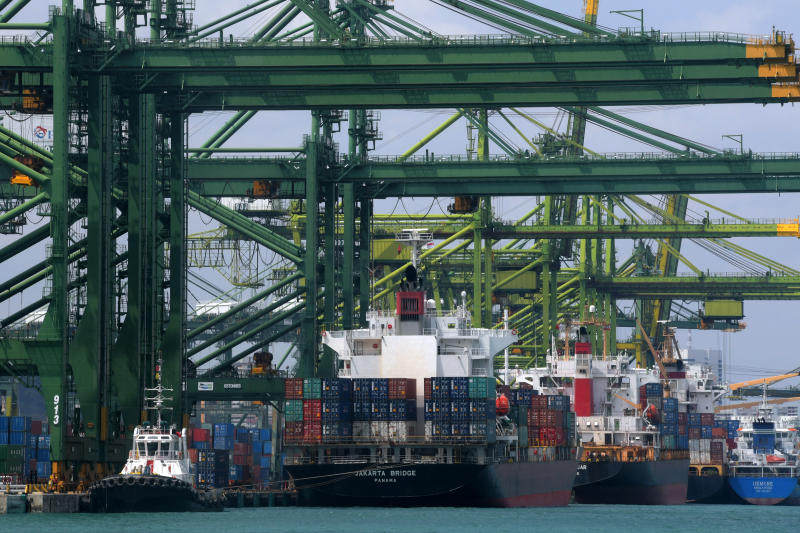Parliament: Singapore to launch pilot for digitising shipping documents
Sign up now: Get ST's newsletters delivered to your inbox

The move to replace paper-based bills of lading with electronic ones aims to reduce delays when container ships, especially those carrying perishable goods, dock and unload here.
ST PHOTO: JAMIE KOH
SINGAPORE - A pilot project is starting later this year to turn paper-based bills of lading into electronic ones to reduce delays when container ships, especially those carrying perishable goods, dock and unload here.
Related changes to the Electronic Transactions Act will also be made to recognise e-bills of lading to keep pace with international standards.
The authorities hope that the twin moves will speed up the acceptance of electronic document exchange in the maritime sector across the region, helping to reduce costs for businesses and lower the risk of fraud arising from the current usage of paper documents.
The pilot, known as TradeTrust, was announced by Minister for Communications and Information S. Iswaran in Parliament on Monday (March 4).
Mr Iswaran, who was speaking during the debate on his ministry's budget, said: "TradeTrust will enhance our attractiveness as a business hub and improve the efficiency of our trading and logistics sectors... The Info-communications Media Development Authority (IMDA) and other government agencies are now working with industry partners to conduct proof-of-concept trials and will provide more details later."
A bill of lading is a legal and commercial document providing evidence for the contract of carriage, receipt and ownership of goods for a cargo shipment.
Given the intricacies of maritime trade law, the paper trail typically runs up to hundreds of pages for a single transaction.
Trade document processing and administration is estimated to add 20 per cent to the physical cost of shipping a single container, said the Ministry of Communications and Information.
The risk of fraud has traditionally been compounded because the documents must be mailed or physically handed over from one party to another.
With e-bills of lading, blockchain technology is used to provide all participants with proofs of authenticity and provenance for electronic trade documents being exchanged.
This would remove the need for repetitive checks by each country to ascertain the legitimacy of documents received.
TradeTrust comes in the wake of another e-bills of lading pilot launched last October between Pacific International Lines - the Republic's largest private-owned shipping line - and IBM.
IMDA will partner the Maritime and Port Authority (MPA) to lead TradeTrust development for e-bills of lading, with support from the Singapore Customs and the Singapore Shipping Association.
The four agencies signed a Memorandum of Understanding to affirm their support for the initiative in January.
IMDA will also be organising industry consultation workgroups with key stakeholders from the maritime trade, logistics and finance sectors to seek feedback on the initiative.
It then plans to issue a Request for Proposal to invite the industry to submit proposals on the technical implementation of the TradeTrust infrastructure.


